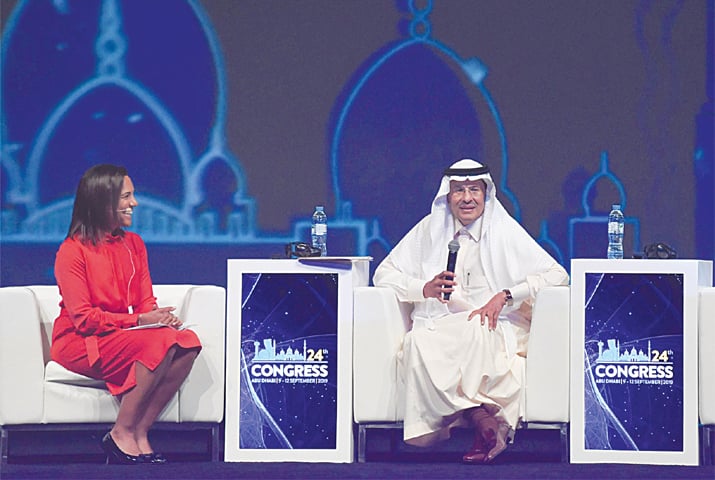
ABU DHABI: Saudi Arabia wants to enrich uranium in the future to fuel its planned nuclear power programme, its energy minister said on Monday, a sensitive step that could complicate US companies’ involvement in the plan.
The world’s top oil exporter has said it wants to use the metal to diversify its energy mix, but uranium enrichment also opens up the possibility of military uses of the material, the issue at the heart of Western and regional concerns over Iran’s atomic work.
“We are proceeding with it cautiously... we are experimenting with two nuclear reactors,” Prince Abdulaziz bin Salman said, referring to a plan to issue a tender for the Gulf Arab state’s first two nuclear power reactors.
The Saudi energy minister told an energy conference in Abu Dhabi that ultimately the kingdom wanted to go ahead with the full cycle of the nuclear programme, including the production and enrichment of uranium for fuel.
The tender is expected in 2020, with US, Russian, South Korean, Chinese and French firms involved in preliminary talks about the multi-billion-dollar project.
But the issue of uranium enrichment has been a sticking point with Washington, especially after Crown Prince Mohammed bin Salman said last year that the kingdom would develop nuclear arms if regional rival Iran did.
Saudi Arabia has backed President Donald Trump’s “maximum pressure” campaign against Iran after he withdrew the United States from a 2015 nuclear pact that curbed Iran’s disputed nuclear programme in exchange for sanctions relief.
In order for US companies to compete for Saudi Arabia’s project, Riyadh would normally need to sign an accord on the peaceful use of nuclear technology with Washington, under the United States Atomic Energy Act.
Saudi officials have said they would not sign a deal that would deprive the kingdom of the possibility of enriching uranium or reprocessing spent fuel in the future — both potential paths to a bomb. The Saudi energy minister said oil production cuts would benefit all exporting nations, in an indication he will support further reductions to address an oversupplied market and sagging prices.
In his first comments since being appointed by his father King Salman on Sunday, Prince Abdulaziz signalled no major change in approach in Saudi Arabia, the de facto Opec (Organisation of Petroleum Exporting Countries) leader which pumps about a third of the cartel’s oil.
“The pillars of our oil policy are pre-determined and will not change,” he told Saudi broadcaster Al-Arabiya.
The prince was in Abu Dhabi to attend the World Energy Congress, followed by a meeting on Thursday of the Joint Ministerial Monitoring Committee (JMMC) of the Opec+ alliance for a supply cut deal reached last year.
Published in Dawn, September 10th, 2019













































